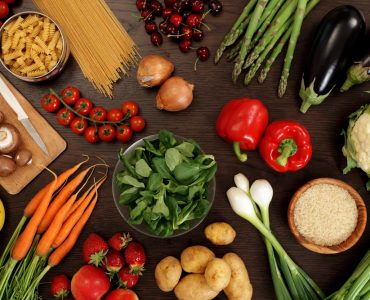A plant-based diet is a diet which consists predominantly of fruits, vegetables, legumes, grains, nuts, and other non-meat nutrients. While people who eat a plant-based diet often do not consume large amounts of meat, they do not have to be vegetarian. People who consume a plant-based diet tend to be omnivores and a plant-based diet encompasses a broad range of eating styles, from more traditionally meat-heavy diets to strict vegetarian ones.
Fruits and vegetables and other plant-based nutrients offer many antioxidants and phytochemicals that researchers believe might help fight off various cancers. They also offer evidence-based protection against stroke, diabetes, hypertension, and other cardiovascular defects. Individuals who partake of a plant-based diet often have lower cholesterol and are less prone to obesity. Scientists even believe that antioxidants in many plant foods can help protect eyes against cataracts and retinal deterioration.
Choosing to eat a plant-based diet is a simple process which can provide you with immeasurable benefits. When you prepare meals, two-thirds of your plate should be covered with plant-based foods and the other one-third with lean meat, low-fat dairy, poultry, or seafood. Try to eat a variety of different fruits and vegetables since they have all have different vital nutrients. You can look for opportunities throughout the day to increase your fruit and vegetable intake by sprinkling berries in your breakfast cereal and adding vegetables to stews, spaghetti sauces, meat loafs, and other hearty meals.











